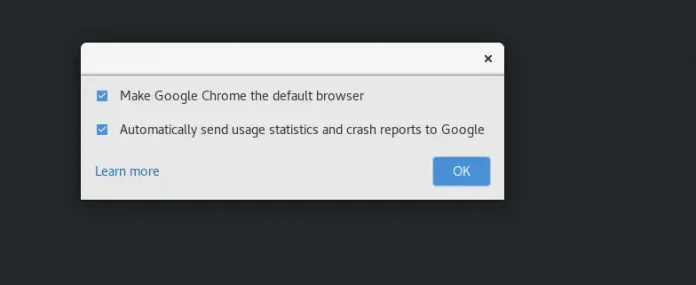Given a string str, the task is to count the number of alphabets having ASCII in the range [l, r].
Examples:
Input: str = "neveropen"
l = 102, r = 111
Output: Count = 6, Characters = g, f, k, o
Characters - g, f, k, o have ascii values in the range [102, 111].
Input: str = "GeEkS"
l = 80, r = 111
Output: Count = 3, Characters = e, k, S
Approach: Start traversing the string and check if the current character has ASCII value less than equal to r and greater than equal to l. If yes then increment the count and print that element.
Below is the implementation of the an above approach:
C++
// C++ implementation of the above approach#include <bits/stdc++.h>using namespace std;// Function to count the number of// characters whose ascii value is in range [l, r]int CountCharacters(string str, int l, int r){ // Initializing the count to 0 int cnt = 0; int len = str.length(); for (int i = 0; i < len; i++) { // Increment the count // if the value is less if (l <= str[i] and str[i] <= r) { cnt++; cout << str[i] << " "; } } // return the count return cnt;}// Driver codeint main(){ string str = "neveropen"; int l = 102, r = 111; cout << "Characters with ASCII values" " in the range [l, r] are \n"; cout << "\nand their count is " << CountCharacters(str, l, r); return 0;} |
Java
// Java implementation of the above approachimport java.util.*;import java.lang.*;class GFG{// Function to count the number // of characters whose ascii // value is in range [l, r]static int CountCharacters(String str, int l, int r){ // Initializing the count to 0 int cnt = 0; int len = str.length(); for (int i = 0; i < len; i++) { // Increment the count // if the value is less if (l <= str.charAt(i) && str.charAt(i) <= r) { cnt++; System.out.print(str.charAt(i) + " "); } } // return the count return cnt;}// Driver codepublic static void main(String args[]){ String str = "neveropen"; int l = 102, r = 111; System.out.print("Characters with ASCII values" + " in the range [l, r] are \n"); System.out.print("\nand their count is " + CountCharacters(str, l, r));}}// This code is contributed// by Akanksha Rai(Abby_akku) |
Python3
# Python3 implementation of the above approach# Function to count the number of characters # whose ascii value is in range [l, r]def CountCharacters(str1, l, r): # Initializing the count to 0 cnt = 0; len1 = len(str1) for i in str1: # Increment the count # if the value is less if (l <= ord(i) and ord(i) <= r): cnt = cnt + 1 print(i, end = " ") # return the count return cnt# Driver codeif __name__=='__main__': str1 = "neveropen" l = 102 r = 111 print("Characters with ASCII values " + "in the range [l, r] are") print("\nand their count is ", CountCharacters(str1, l, r))# This code is contributed by # Kirti_Mangal |
C#
// C# implementation of the above approachusing System;class GFG{// Function to count the number // of characters whose ascii // value is in range [l, r]static int CountCharacters(string str, int l, int r){ // Initializing the count to 0 int cnt = 0; int len = str.Length; for (int i = 0; i < len; i++) { // Increment the count // if the value is less if (l <= str[i] && str[i] <= r) { cnt++; Console.Write(str[i] + " "); } } // return the count return cnt;}// Driver codepublic static void Main(){ string str = "neveropen"; int l = 102, r = 111; Console.Write("Characters with ASCII values" + " in the range [l, r] are \n"); Console.Write("\nand their count is " + CountCharacters(str, l, r));}}// This code is contributed// by Akanksha Rai(Abby_akku) |
PHP
<?php // PHP implementation of the above approach// Function to count the number of// characters whose ascii value is // in range [l, r]function CountCharacters($str, $l, $r){ // Initializing the count to 0 $cnt = 0; $len = strlen($str); for ($i = 0; $i < $len; $i++) { // Increment the count // if the value is less if ($l <= ord($str[$i]) && ord($str[$i]) <= $r) { $cnt++; echo $str[$i] ." "; } } // return the count return $cnt;}// Driver code$str = "neveropen";$l = 102;$r = 111;echo "Characters with ASCII values" . " in the range [l, r] are \n";echo "\nand their count is " . CountCharacters($str, $l, $r);// This code is contributed// by ChitraNayal?> |
Javascript
<script>// Javascript implementation of the above approach // Function to count the number // of characters whose ascii // value is in range [l, r] function CountCharacters(str,l,r) { // Initializing the count to 0 let cnt = 0; let len = str.length; for (let i = 0; i < len; i++) { // Increment the count // if the value is less if (l <= str[i].charCodeAt(0) && str[i].charCodeAt(0) <= r) { cnt++; document.write(str[i] + " "); } } // return the count return cnt; } // Driver code let str = "neveropen"; let l = 102, r = 111; document.write("Characters with ASCII values" + " in the range [l, r] are <br>"); document.write("<br>and their count is " + CountCharacters(str, l, r));// This code is contributed by rag2127</script> |
Characters with ASCII values in the range [l, r] are g k f o g k and their count is 6
Complexity Analysis:
- Time Complexity: O(N), as we are using a loop to traverse N times so it will cost us O(N) time
- Auxiliary Space: O(1), as we are not using any extra space.
Ready to dive in? Explore our Free Demo Content and join our DSA course, trusted by over 100,000 neveropen!




